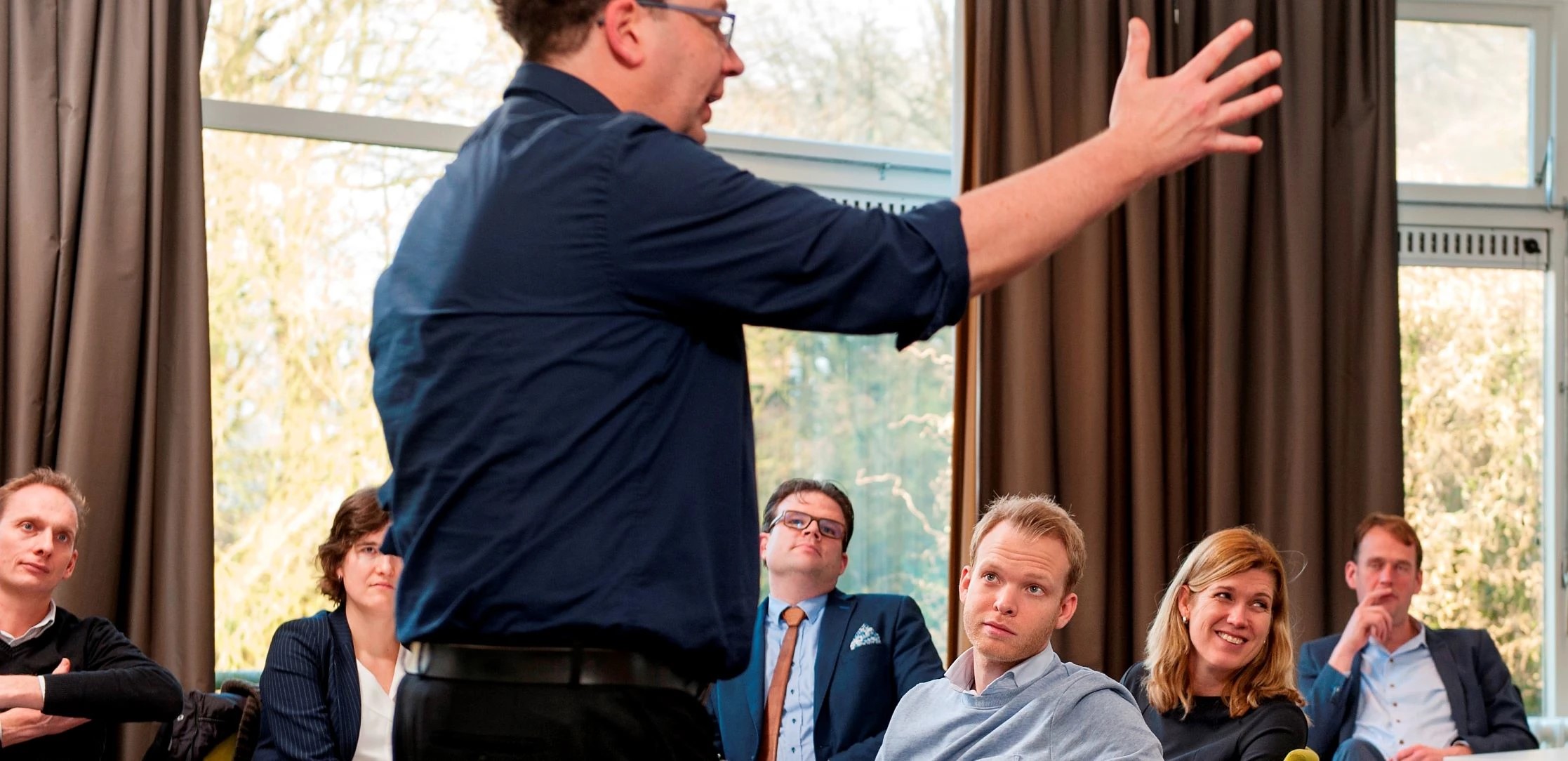For businesses, organizations, and governments, responding to the opportunities and challenges of digital advancements is crucial. But how do you ensure a strategy that stands the test of time? Wolter Lemstra, lead faculty member for Digital Strategy and Transformation at Nyenrode Business University, offers five practical tips:
1. Explore the future with a broad leadership team
Look far enough ahead to move beyond today’s limitations. Investigate how customer needs can be met in the future and identify potential value propositions, while keeping sustainability goals in mind. Revisit and, if necessary, adjust your mission, vision, and objectives. Then design a fitting strategy. Toolkit: Futuring and Foresights
2. Test the strategy’s resilience with alternative futures
Recognize that multiple plausible futures can unfold. Work with your leadership team to identify key “drivers” shaping the future—technological, economic, political, and societal. Focus on the drivers with the greatest uncertainty and impact, then build four possible scenarios. Test your strategy against these scenarios. If it doesn’t align with one of the extremes, define “early warning signals” to adjust the strategy in time. Toolkit: Scenario Planning
3. Recognize internal and external factors that impact strategy execution
Leverage the collaborative culture by involving a broad leadership team to ensure buy-in. Translate the strategy into actions across all organizational units and make progress measurable. Continuously align the strategy with the changing environment to prevent “strategic drift.” Don’t just discuss results—secure them. Establish a feedback loop to learn and adapt. Toolkit: Operating Model & Strategy Execution Office, Strategic Drift, and Strategy as Practice
4. Develop digital capabilities and foster digital leadership
A new era requires new skills. Understand digital technologies and learn when and how to apply them. Distinguish between “hype” and reality. Collaborate with experts in areas such as big data, AI, machine learning, blockchain, and ecosystems. Identify digital disruptions and design new value propositions in response. Toolkit: Expert Faculty from Nyenrode and Beyond
5. Understand the organization as a set of paradoxes and learn to manage them
If the organization resists change or seemingly perfect solutions don’t work in practice, the underlying issue is likely a paradox, not a problem. Paradoxes are apparent contradictions that can’t be solved but can be managed for optimal results. Every organization operates within a framework of 11 strategic paradoxes. Learn the upsides and downsides of opposing poles and use the “infinity loop” to manage them effectively. Toolkit: Strategy Synthesis, Strategy Profiler, and Polarity Management
Related programs
-
Modular Executive MBA in Business & IT
Start date: spring & autumnLanguage:- English
Location:- Breukelen
The Modular Executive MBA in Business & IT focuses on technology as the driver of your business.
View program
-
Modular Executive MBA in Business & Sustainable Transitions
Start date: spring & autumnLanguage:- Dutch
Location:- Breukelen
The Modular Executive MBA in Business & Sustainable Transitions focuses on transitions underway around sustainability.
View program
-
Modular Executive MBA in Public & Private
Start date: spring & autumnLanguage:- Dutch
Location:- Breukelen
In the Public & Private MBA, you will bridge the gap between public and private with a focus on the cultural differences.
View program
-
Business Processes and Technology
Start date: March 12, 2026Language:- English
Location:- Breukelen
We will look at business processes and technology's role therein. The module is part of the Modular Executive MBA in Business & IT.
View program
-
Digital Strategy and Transformation
Start date: March 3rd, 2026 - September 8th. 2026Language:- English
Location:- Breukelen
The module Digital Strategy and Transformation looks at the strategic perspective of digital transformation. Part of our Modular Executive MBA Business & IT.
View program
-
Business Value of Data and Technology
Start date: October 1, 2026Language:- English
Location:- Breukelen
The module Business Value of Data and Technology provides academic knowledge and practical tools to help you organize IT and data fit for purpose. Part of Modular Executive MBA.
View program

